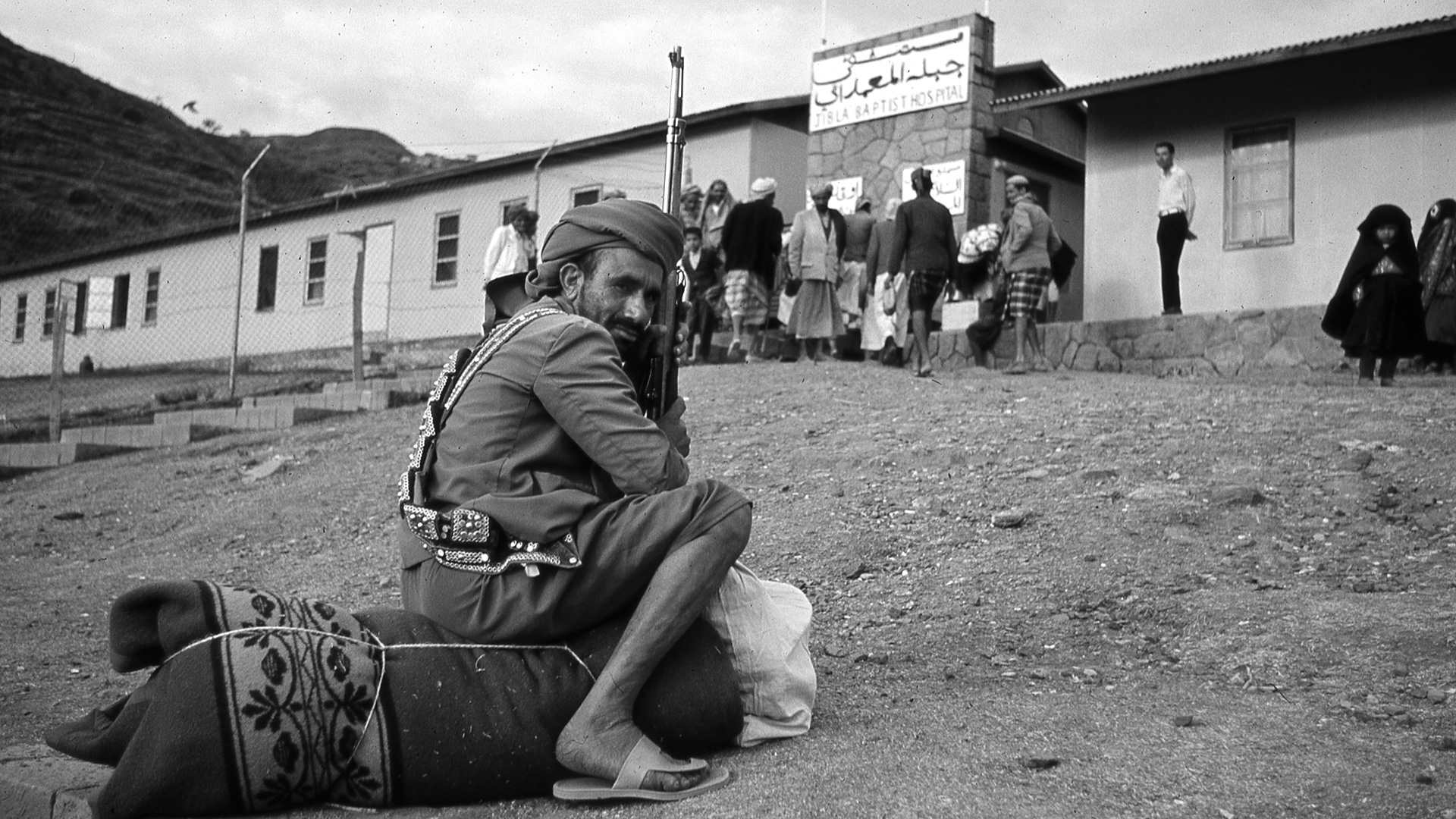
It’s been fifteen years since I walked the dry, stony grounds of Jibla Baptist Hospital in Yemen, where a lone gunman murdered three IMB medical missionaries on a December morning in 2002.
Southern Baptists had invested their lives in this medical center for more than thirty-five years as they cared for thousands of people in this struggling Middle Eastern nation.
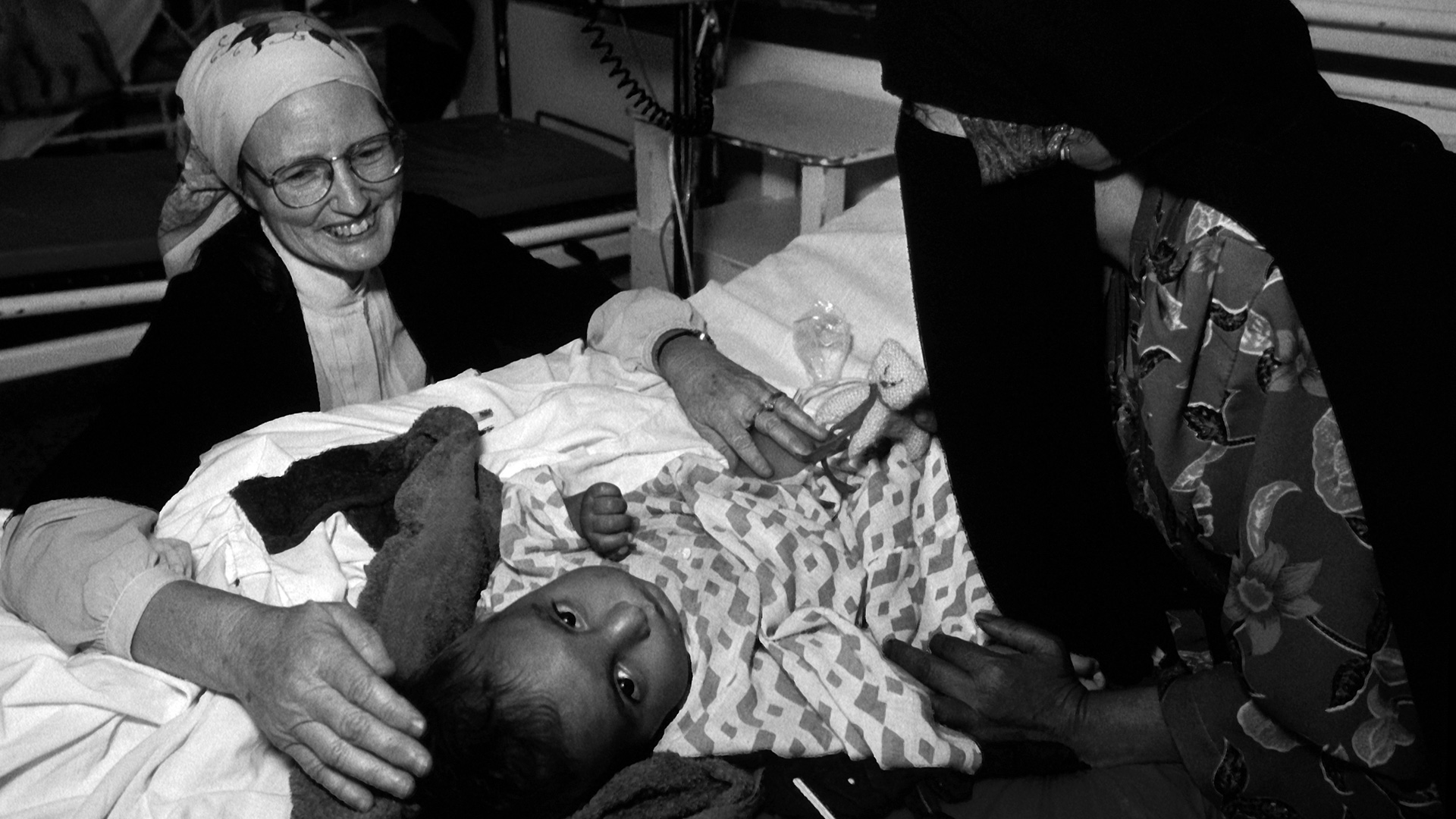
Martha Myers saw the world differently. One of her colleagues said that she often moved from event to event while focusing on what was in front of her.
I arrived shortly after the December 30 attack to cover the tragedy. Just days after the killing, I stood in hospital director Bill Koehn’s office, where Abed Abdul Razak Kamel, an Islamic militant, had appeared at the doorway and gunned down Bill, physician Martha Myers, and purchasing agent Kathy Gariety that terrifying morning.
I remember feeling as though a weight had fallen on my chest as a hospital worker showed me how the killer left Bill’s office and briskly walked through the hospital’s courtyard to the pharmacy office where he shot Don Caswell two times, severely wounding him. The worker guided me back out to the courtyard where the gunman, then out of bullets, was confronted by armed hospital guards. He calmly placed his pistol on the ground, raised his hands, and was arrested.
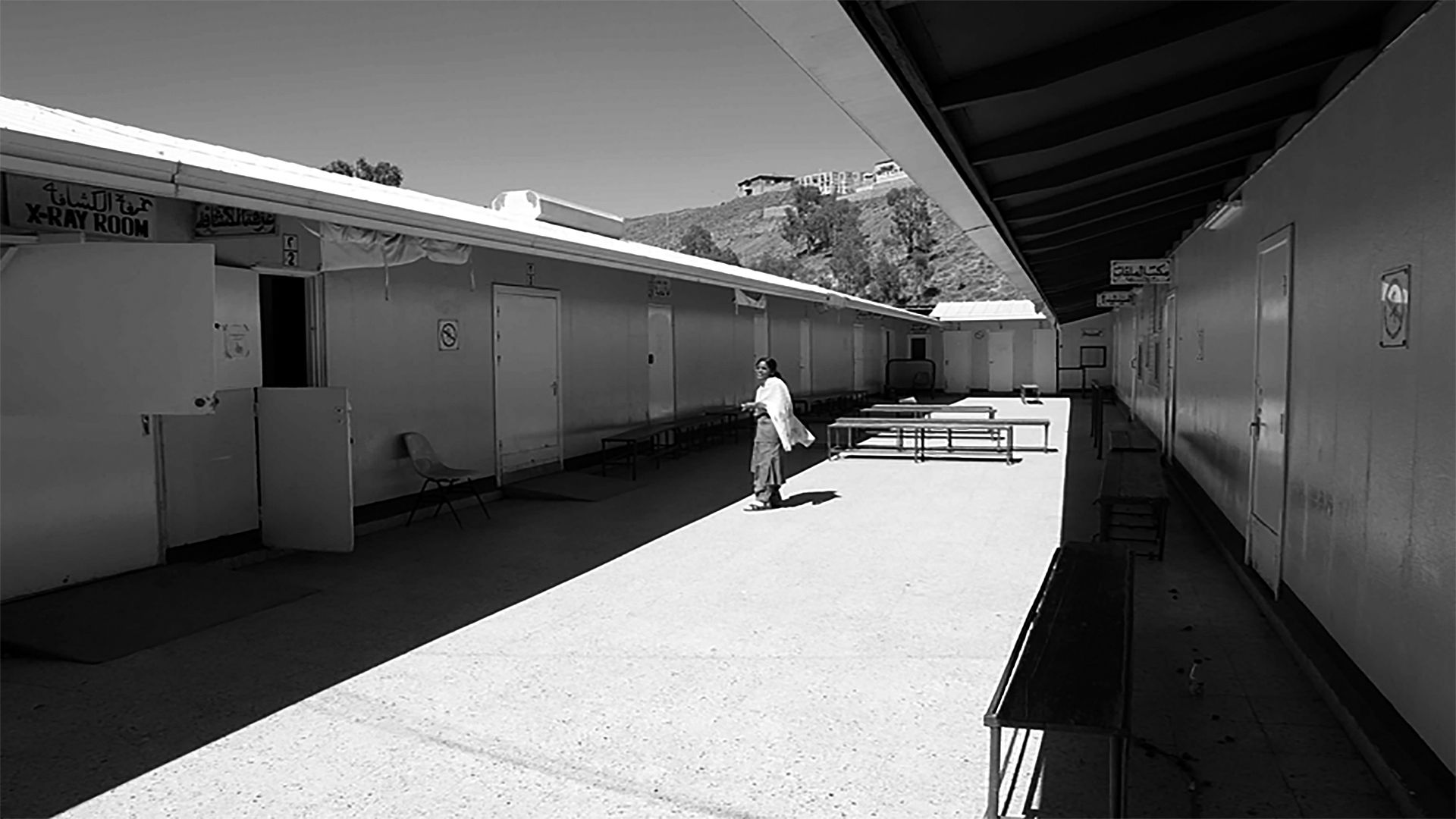
The hospital’s courtyard, which served as a waiting room, was used by the gunman to move from door to door while looking for people to kill.
The heavy smell of cleaning products filled the air as I walked from the narrow courtyard, with its recently scrubbed offices, toward the living quarters of those IMB workers. Rounding a corner, we came to Bill’s workshop where, after a day in the office, he often crafted small wooden toys for children in the area.
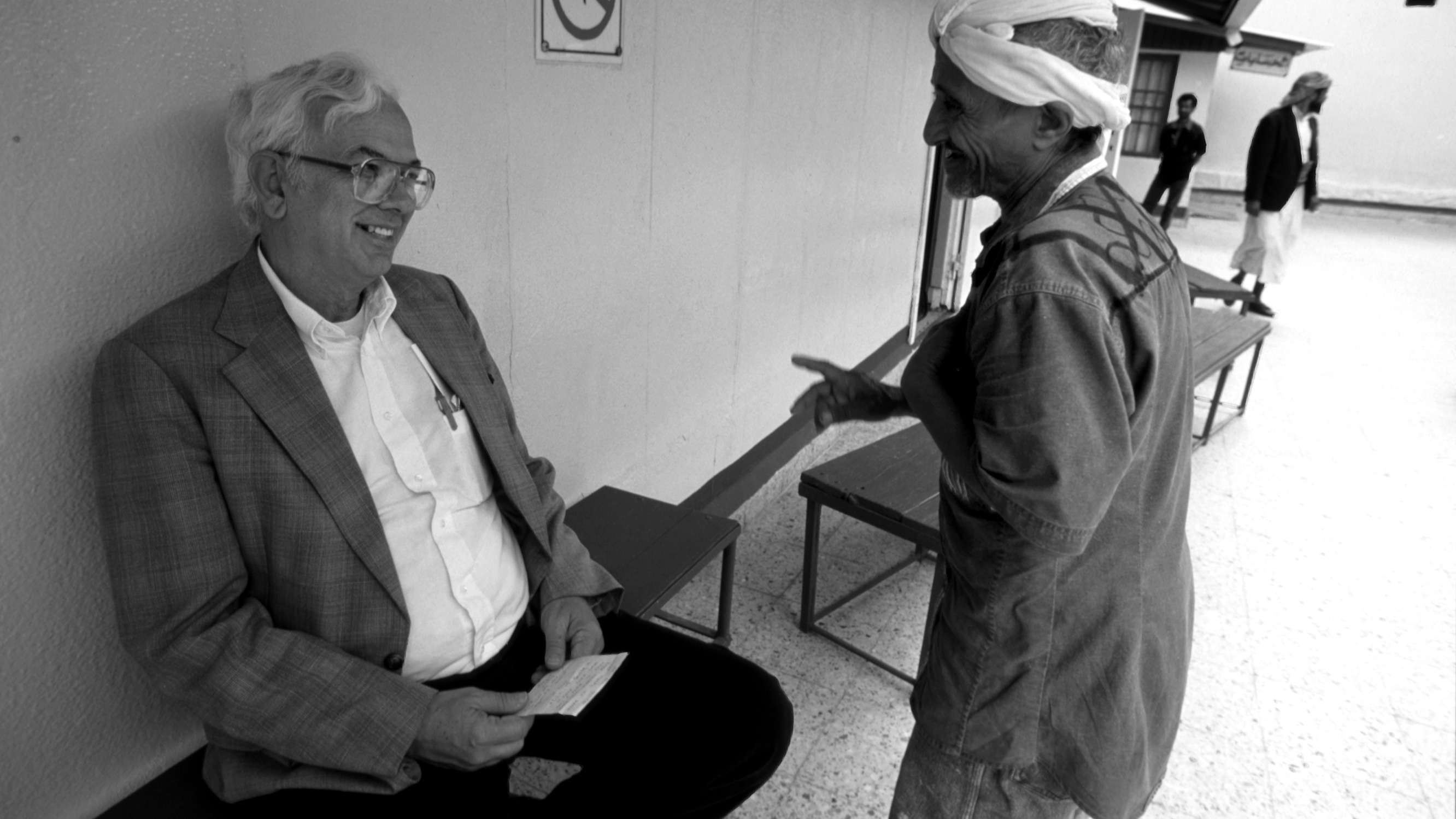
Bill Koehn poured his life into this hospital, yet he was not a trained hospital administrator. He honed his organizational skills working as a supermarket manager before moving to Yemen.
The hospital worker pulled out from under a weathered workbench a box with some of Bill’s most recent creations. Seeing these simple carvings, some half-finished, deepened feelings of loss as I thought about how senseless it was to cut short his life marked by so many acts of kindness.
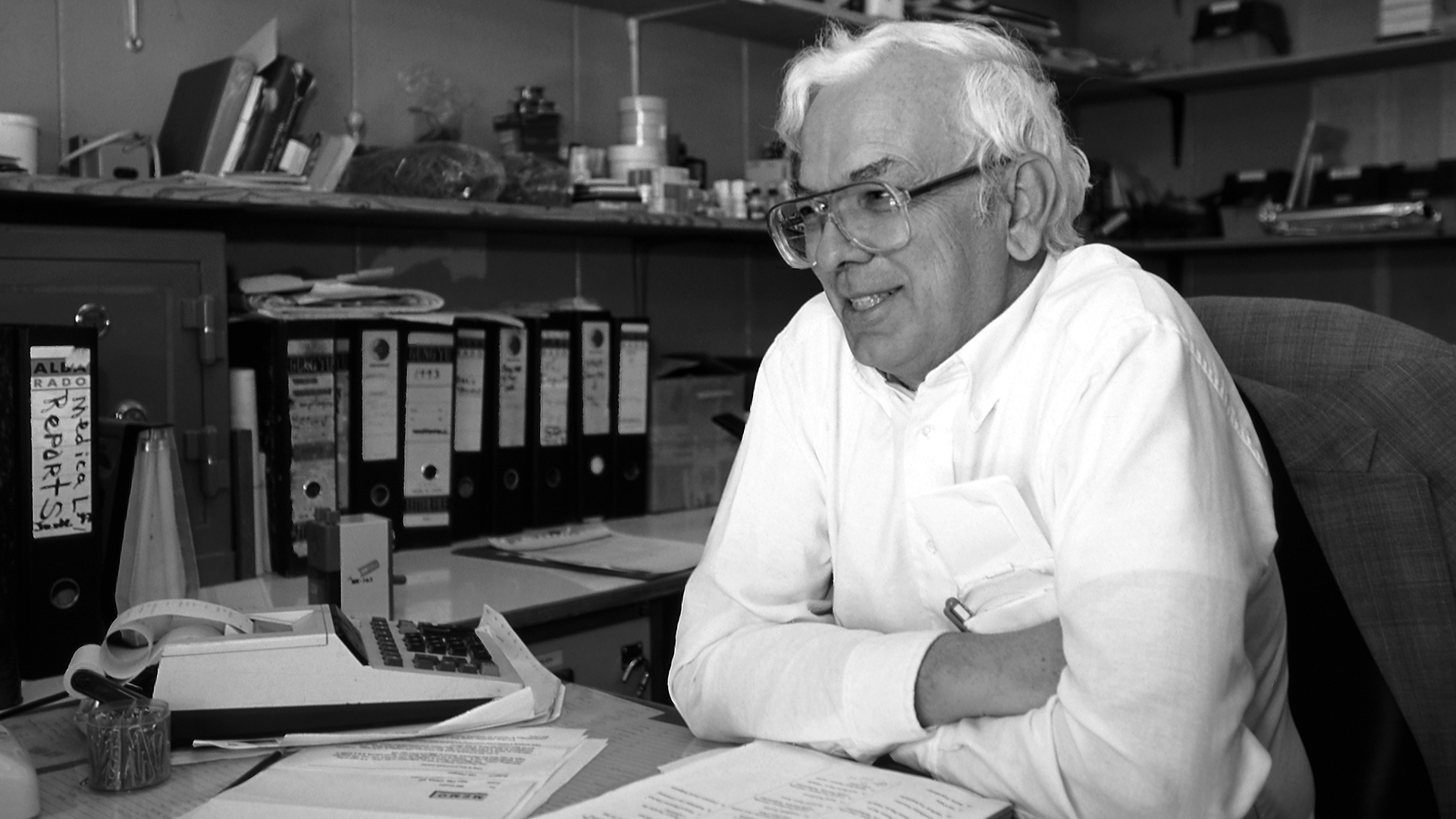
Bill was always searching for ways to help others. He enjoyed making wooden toys, but they were not just for children in Jibla. He taught men in the village to make and sell the toys as a business.
Similar feelings burdened me when I looked at Kathy’s meticulous lists in the hospital’s office. On the day of the attack, Kathy and Bill were to go over the long inventories in preparation for transferring ownership of the hospital to the local Yemeni government in a matter of days.
Later, when I stepped into the apartment of Dr. Martha, the pain grew as I surveyed a multitude of piles that lined her rooms. There were piles of clothing, toys, books, baskets, and even plastic bags—all staged for Martha’s next village trip.
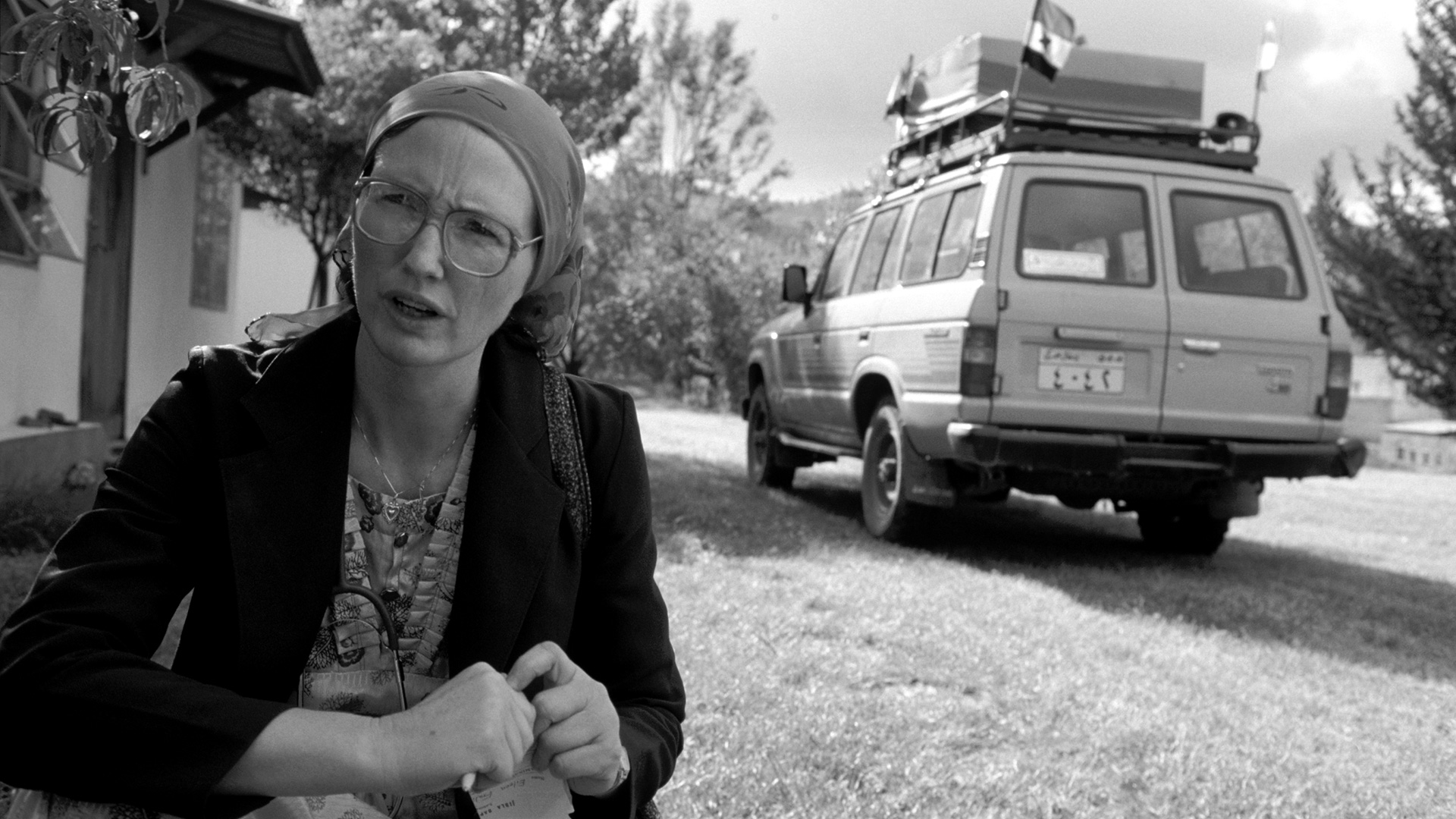
It was not uncommon to be out driving with Martha on a visit that turned into an all-night event. A colleague said she would learn of someone asking for her help, so off Martha would go.
Martha was well known for her trips, which often lasted days as she journeyed over rugged roads to treat the illnesses and wounds of some of the poorest people in Yemen. It was on these trips that she talked carefully about Jesus while dispensing as much of her apartment’s ragtag inventory that her vehicle could carry.
The atmosphere throughout the hospital compound was understandably subdued. As I crisscrossed the grounds, small groups of IMB and international workers huddled together, talking quietly. I tried to steer clear of the circles to respect their privacy and their grief. It was easy to understand why those on the hospital compound sought their colleagues’ comfort. Yemeni police, security forces, and even international news media had descended just after the attack. Now, those outsiders were finally gone and everyone at the medical compound needed time to be left alone.
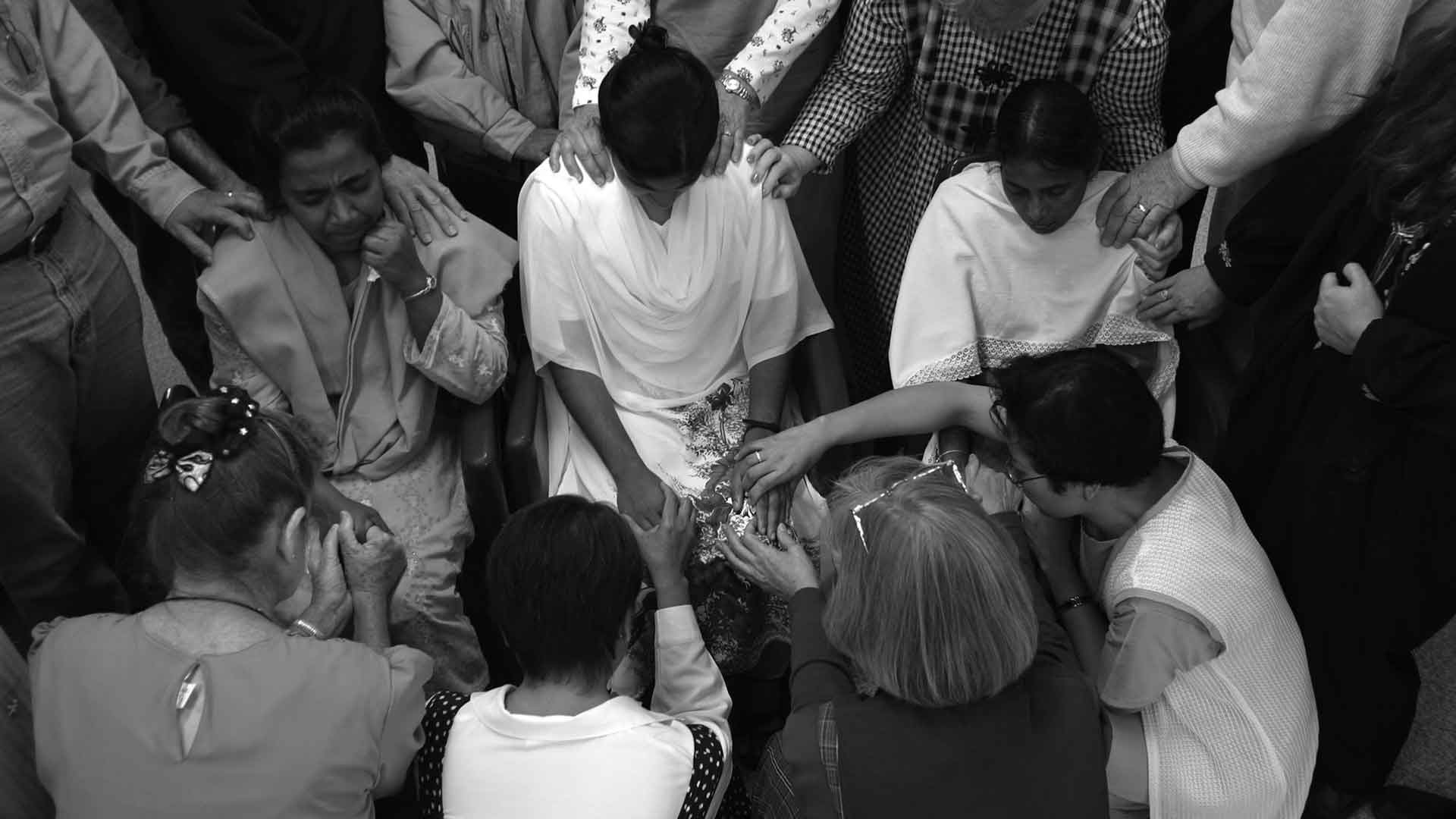
A team leader recalled saying at one of the first memorial services that the attacker did not take the three lives. Those who died freely gave their lives.
And yet, by Sunday morning, just six days after the attack, the hospital team decided it was time to turn outward toward the community they were there to serve. So around midmorning, some of the remaining IMB workers and others from the hospital staff stepped through the compound’s front gate to walk into the streets of Jibla.
I walked alongside the group of about a dozen people, well aware of how the townspeople were watching us on the steep street leading from the hospital down into the community. Nearby shopkeepers called from their stores, some offered tea while others urged some of us to come, sit, and talk. Some men on the street passed by, paused to look back, and then turned to join the walk.
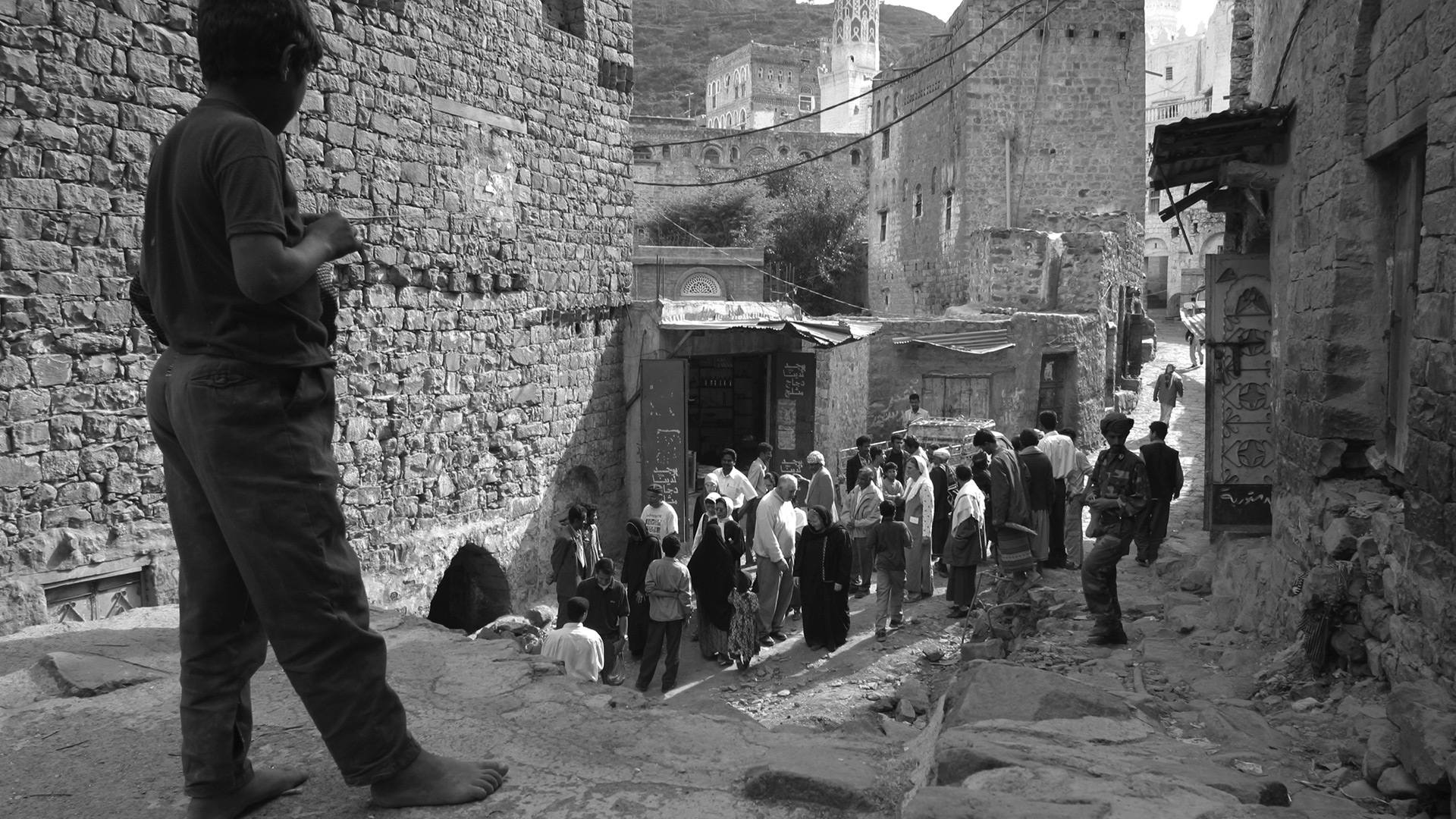
IMB and other hospital workers walk through Jibla a few days after the attack.
It was such a simple thing to do—just walk down the street, drifting in and out of conversations, letting the community share in the grief and offer what care they could. With each interaction, the strain of tragedy, and maybe even a little of the pain, lessened for some in the procession as they talked, listened, and even prayed for one another.
Now, fifteen years later, news out of Yemen makes that simple walk feel so far away. The nation has plunged into a civil war that’s pushing the country toward devastation, with millions at risk of starvation.
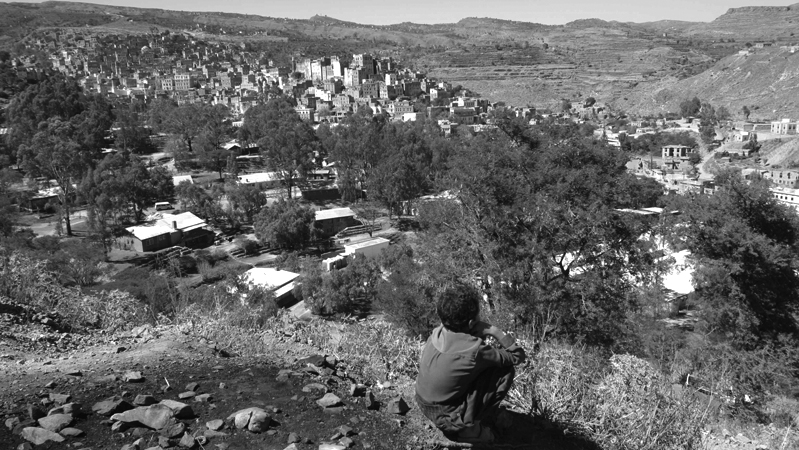
This whole tragedy was not about Jibla Baptist Hospital, or even Southern Baptists. God is glorifying himself by saving a remnant from every people group on the planet, and his disciples—Bill, Martha, Kathy, and so many others—are the instruments he uses to do that.
Logic and the inherent risk of being in Yemen may suggest it’s better to leave them to the suffering brought about by their own war. But the gospel is not about isolation. It’s about God’s love for all, even for those in the hardest places. Pray for those who will one day take the next walk down a Yemeni street, ready to share the love and peace of the gospel, no matter what the cost.
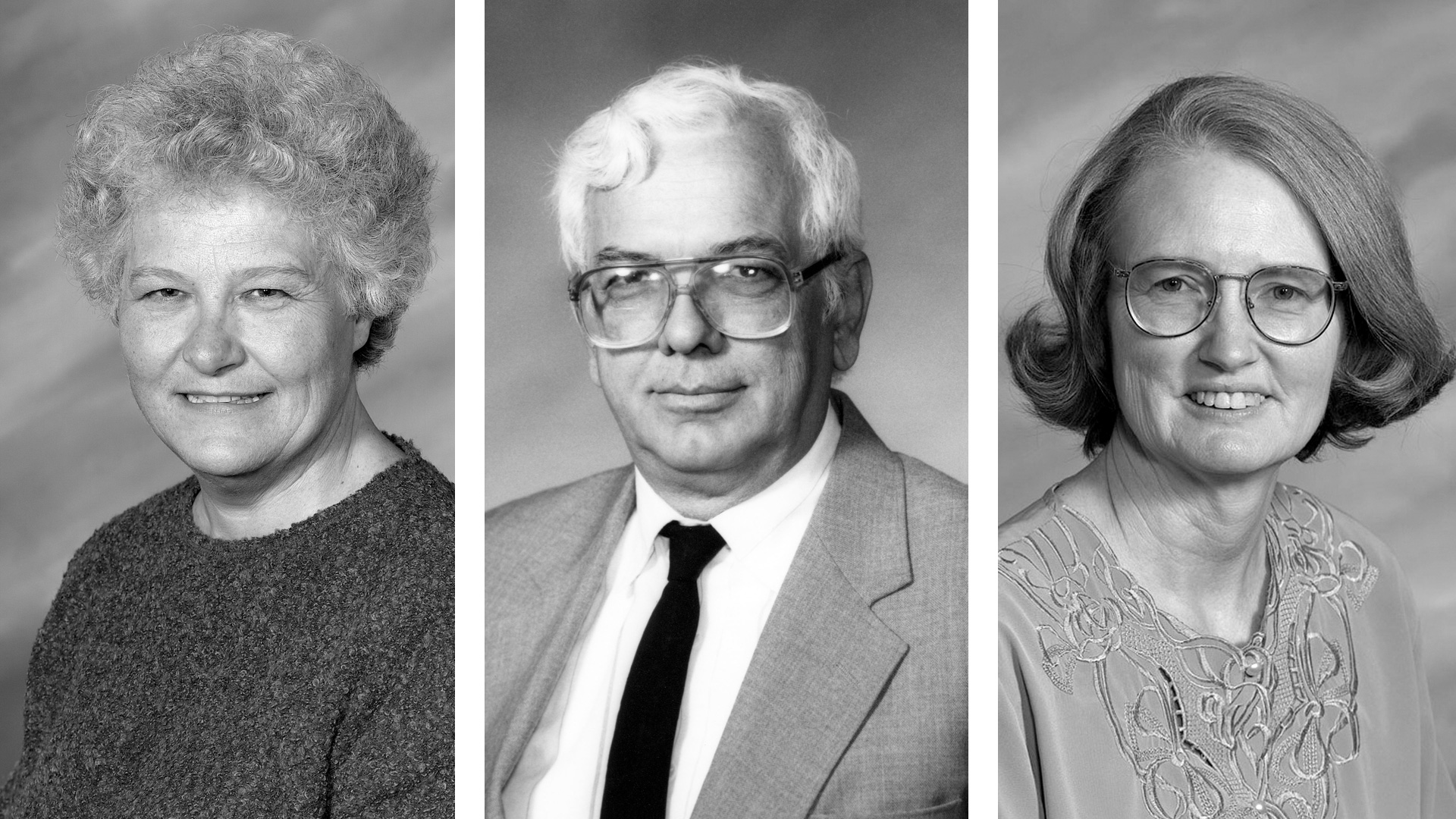
Kathleen Gariety, Bill Koehn, and Martha Myers
Michael Logan has worked with IMB field teams for more than twenty-five years as a writer, photographer, and project leader on evangelistic and discipleship projects to proclaim the gospel and plant churches in primarily closed countries.

